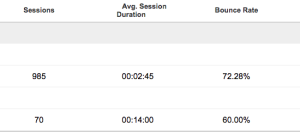— July 20, 2017

ColiN00B / Pixabay
At the turn of the millennium, managed service providers (MSP) were only used by Fortune 500 companies controlling huge networks and operations for companies with dozens of locations. Today, however, managed service providers are overseeing all types of companies, from emerging start-ups to well-established multinationals. As IT services grow more complicated and systems shift from on-site services to the cloud, small to medium enterprises are contracting MSPs to monitor and organize networked services. In small businesses, IT resources can be more limited, with one or two agents handling a myriad of different concerns. With an MSP, companies of all sizes can benefit from the expertise such a provider can bring.
Managed IT services do much more than simply fix what’s broken. While MSPs troubleshoot network issues and repair software glitches, other forms of managed services—including software, multi-cloud management, and IoT management—are growing the MSP market. Also, today’s rapid expansion of cloud-based platform usage has increased the need for managed security. Given the high costs of managing an up-to-date security base in-house, MSPs can equip businesses with a wide scope of advanced security measures.
Why use IT managed service providers?
MSPs are saving companies money, providing state-of-the-art services, and allowing businesses to focus on their customers and key goals. Managed IT services offer access to the newest technologies without the added costs and baggage of on-site installation, and the experts fluent in the new tech. Additionally, managed IT can minimize downtime, as its server and networked capabilities are able to expand or contract much more readily than small business on-site servers. Managed IT services can provide proactive strategies and long-term planning; they understand the systems and potential complications that may occur. For many industries with strict security measures, focused managed IT services are able to provide companies with heightened security and security management.
Types of managed IT solution services
Managed IT solutions can be broad, encompassing all aspects network management, or they can be niche, helping a company work with one specific unit, such as data storage, analysis, or security. However, there are general types of managed IT solutions that businesses can consider when shopping for a managed service provider. Here of some of the provided services:
Managed support services: The most common service, which can be categorized under the umbrella term ‘support services’, includes traditional help desk services and tech support. With managed support services, companies are able to avoid the expense of a large team of IT professionals, relying instead on specially trained agents who are familiar with the system and have worked with it under a variety of different circumstances. Managed support offers small companies an affordable way to access these services, usually through a routine contract that doesn’t involve a lot of vendor negotiation.
Managed cloud infrastructure: With managed cloud hosting, companies can lease cloud space that is entirely managed by the host company. These service providers can offer additional backup, operating system and app management, and technical support for cloud usage. Managed cloud services offer infrastructure as a service platform with access to database and software tools. They may also manage databases and other application stacks that run on that infrastructure. Such a service eliminates redundancy and allows for scalable storage.
Managed Software as a service (Saas): Through managed software as a service, the MSP provides initial software access, as well as upgrades and support services. While most Saas services lease the software directly from the software provider, managed Saas services let a company engage a particular application when it is needed. For example, if a business needs an application for a particular client or project, the IT solution provider can let them access that software application for a finite period.
Managed networks and infrastructure: Managed networks are networks that are built by a third-party service provider that is leased to the operating business. When companies use managed networks and infrastructure, they use a contract level service instead of operating their own data center and communications networks. These services can manage data backup, data storage, and local networks. Furthermore, with managed communications, a managed services provider can run data, voice, and video, all on the same network. Company call centers can use this managed service to have the service provider operate all of the technical aspects of a call center, including its phones and unified communications software.
IT lead generation services: IT lead generation services work with sales teams but are distinct in important ways. Lead generation services develop and isolate a steady stream of qualified leads. In industries with highly competitive sales markets, targeted leads are key to making sales. Successful IT lead generation services can produce accessible web campaigns, know how social media can generate leads, and understand the industry’s unique market attributes. These companies are experts at producing qualified leads and nurturing sales prospects so that the sales teams can focus more on developing established links and selling more effectively.
Managed security: One of the most rapidly growing aspects of IT managed services, managed security services are able to keep on top of current security protocols for keep data and applications secure on cloud-based servers. Because security upgrades are processed virtually, they are installed seamlessly and on-time, preventing or minimizing security lag. Managed security can prevent advanced malware and ransomware across a wide body of servers simultaneously. Additionally, most managed security services providers take a holistic approach, monitoring all aspects of networked services from endpoint to cloud, tailoring services, and relieving companies of industry compliance security burdens.
Data analytics: One of the newer aspects of managed services, data analytics services are bringing data expertise to individual companies. With data analytics services, experts bring the most advanced knowledge to make data intelligible. While building an expert team within a company can be expensive and time-consuming, data analytics services companies are bridging the gap between raw data acquisition and useful strategies that arise from analysis to help businesses further their short and long-term goals.
Managed wireless and printing: Finally, managed IT services can also provide the infrastructure for remote access, including providing managed wireless services and printing. With managed wireless services, companies can be assured of less network downtime, regular upgrades, and service management. Furthermore, with some industries, wireless security compliance is more complicated, particularly in the medical industry, in which data needs to be kept HIPAA compliant. Through managed wireless services, experts can handle day-to-day monitoring of wireless security. Managed printing services also help to keep data and documents secure, as it can remotely monitor printing while keeping data and documents secure through its network.
Of course, many of these managed services are meant to function together and are more successful if they are managed by the same service company. Wireless, cloud, and software services all benefit from managed support. These services are able to account for scalability and speed issues quickly and efficiently. Likewise, data services and IT lead generation noticeably work well together. Clear data analysis can inform IT lead generation, which conversely provides more information for data analysis. What’s crucial here is that SMEs can choose from an array of different managed services. Distinct industries will benefit from certain managed services but not others; however, these services can reduce costs and increase efficiency in almost any sales or service industry.
Managed IT solutions services provide the infrastructure, networks, and security services that large enterprises maintain in-house. However, with managed services, companies can use these at a fraction of the cost and with a team of experts. Managed IT support services can troubleshoot problems and provide advanced tech support, while managed service providers can provide smaller companies with managed cloud access and software, erasing the infrastructural overhead and upkeep of on-site servers.
These services are radically changing small business technology. Previously, certain kinds of software and networked applications were not cost effective for SMEs, but managed services are now giving these companies expert-level services whenever they are needed.
Business & Finance Articles on Business 2 Community
(69)
Report Post







